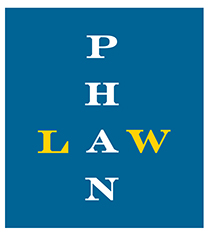Criminal Offenses and Consequences to a Texas Nurse’s License
As a Texas nurse attorney defending Texas nurses, one of the more common complaints facing Texas nurses in the specialized area that The Phan Law Firm, P.C., practices known as license professional defense, involves nurses that face criminal charges while they are licensed, thus inviting the inevitable Board complaint with exposure to discipline.
The Board of Nursing’s authority to discipline a nurse for criminal conduct
There is simply no one-size fits all end result for the nurse in terms of discipline imposed due to the myriad of criminal offenses and other factors, including the severity of the offenses. However, there are important considerations when it comes to criminal offenses. First, the Board, under its statutory authority and Board rules, has the authority to discipline a nurse for criminal offenses. This means for criminal offenses resulting in convictions, both felonies and misdemeanors, and even those offenses that result in deferred adjudication where judgment of conviction is not entered.
Determining whether the criminal offense is directly related to the practice of nursing
The nature of the discipline will turn on the offense and determine the significant threshold of whether that offense is directly related to the practice of nursing. For example, under the Nursing Practice Act, there are certain offenses that will result in the automatic revocation of a nurse’s license statutorily because it is directly related to the practice of nursing. These, inter alia, include: murder, kidnapping or unlawful restraint, sexual assault, aggravated sexual assault, aggravated assault, etc. A review of the Board’s Disciplinary Guidelines for Criminal Conduct is helpful in this instance for other offenses subject to discipline.
Criminal offenses deemed not to be related to the practice of nursing
There are other criminal offenses, however, that the Board has deemed to be minor. Consistent with Chapter 53 of the Texas Government Code, a provision dealing with the licensure of those with criminal offenses warrant an investigation or disciplinary order in connection with a license application or renewal. Following the mandate of Chapter 53 of the Texas Occupations Code, Consequences of Criminal Convictions, the Board of Nursing recognizes that there is certain criminal conduct that is not sufficiently related to the practice of nursing to bring into consideration a nurse’s competency. For example, there are certain offenses that the Board of Nursing, by virtue of its policy, considers insufficiently related to the practice of nursing. These include (note that this list is not exhaustive and subject to change per the Board):
- One misdemeanor DWI/DUI (must not be currently on probation)
- One misdemeanor offense of possession of marijuana
- One misdemeanor domestic/family violence
- One misdemeanor theft greater than $20 and less than $250
- One misdemeanor shoplifting
- One misdemeanor criminal mischief
- One misdemeanor criminal trespass
- One misdemeanor disorderly conduct
- One misdemeanor reckless driving
- One misdemeanor selling alcohol to a minor
- Misdemeanor graffiti
- Misdemeanor loud noise violation
- Misdemeanor minor in possession of tobacco
- Failure to appear
- Vehicular molestation (i.e., slashing tires)
- Up to two misdemeanor public intoxication
- Up to two misdemeanor panhandling
- Up to two misdemeanor theft by check
The bottom line
Nurses who have been arrested and charged with a criminal offense must be mindful to not only hire competent criminal representation by an attorney, but must also be mindful to consider hiring a professional license defense attorney to assist them with potential implications to their licenses with the Texas Board of Nursing. Although a nurse will have to disclose this information to the Board upon application and/or licensure renewal, the Board may also obtain this information if a nurse is subject to a background check by the Board. Successful navigation of dealing with criminal offenses during one’s licensure is critical to determining the most favorable outcome in the event of a Board investigation and the pursuit of possible disciplinary action against a license.










